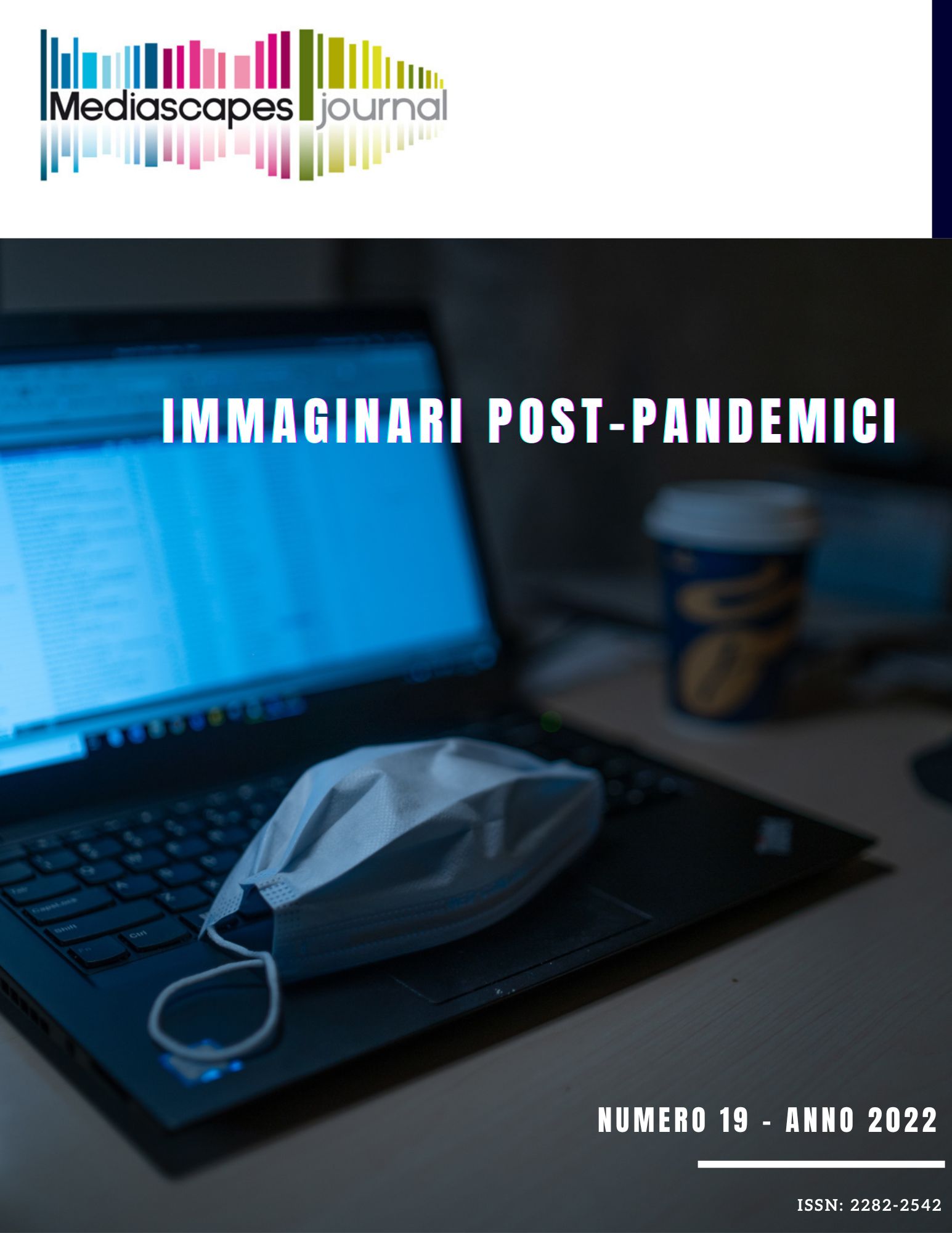Mainstream Soliloquies
Goffman and the Sociology of Self-Talk
Parole chiave:
self-talk, rhetoric, media, conversation, social frameAbstract
The paper aims to probe the rhetoric patterns featuring self-talk in the public sphere, with particular reference to the new forms of “public” soliloquy. To the fore is the rhetoric analysis carried out by Erving Goffman in Forms of Talk (1981), focusing on the conversational frames in which social actors develop their communicative actions: “with self-talk, then, one might want to say that a sort of impersonation is occurring”. Self-talk is not only a dramatic genre or religious practice, it is also a public conversational habit, as digital speeches or sermons confirm. According to Goffman, self-talk can be intended as “the stage-acting of a version of the delivery, albeit only vaguely a version of its reception” (Goffman, 1981, p. 83). Thus, it is possible to investigate the rhetoric patterns of self-talk conceived as a conversational medium, practiced not only in the theatre or in the church, but also on the Internet and television. The purpose is to understand what kind of self-talks are most commonly diffused in the public sphere, assuming that “here is a crucial feature of human communication” (Goffman, 1981, p. 84). Specifically, the methodology concerns Goffman’s frame analysis of self-talk, in reference to the rhetoric processes of “exaggeration, stereotyping, standardization of intensity” (Goffman, 1981, p. 84) of public speeches. This theoretic approach allows an emphasis on the convergence between sociology, communication and rhetoric in the analysis of self-talk, which can be paradoxically considered as a communicative strategy both in public and in private. Thanks to Goffman’s analysis, soliloquy and public sermons can be considered relevant forms of contemporary self-talk, inspired by meaningful rhetorical patterns.
##submission.downloads##
Pubblicato
Come citare
Fascicolo
Sezione
Licenza

TQuesto lavoro è fornito con la licenza Creative Commons Attribuzione 4.0 Internazionale.
Gli autori che pubblicano su questa rivista accettano le seguenti condizioni:
- Gli autori mantengono i diritti sulla loro opera e cedono alla rivista il diritto di prima pubblicazione dell'opera, contemporaneamente licenziata sotto una Licenza Creative Commons - Attribuzione che permette ad altri di condividere l'opera indicando la paternità intellettuale e la prima pubblicazione su questa rivista.
- Gli autori possono aderire ad altri accordi di licenza non esclusiva per la distribuzione della versione dell'opera pubblicata (es. depositarla in un archivio istituzionale o pubblicarla in una monografia), a patto di indicare che la prima pubblicazione è avvenuta su questa rivista.
- Gli autori possono diffondere la loro opera online (es. in repository istituzionali o nel loro sito web) prima e durante il processo di submission, poiché può portare a scambi produttivi e aumentare le citazioni dell'opera pubblicata (Vedi The Effect of Open Access).


